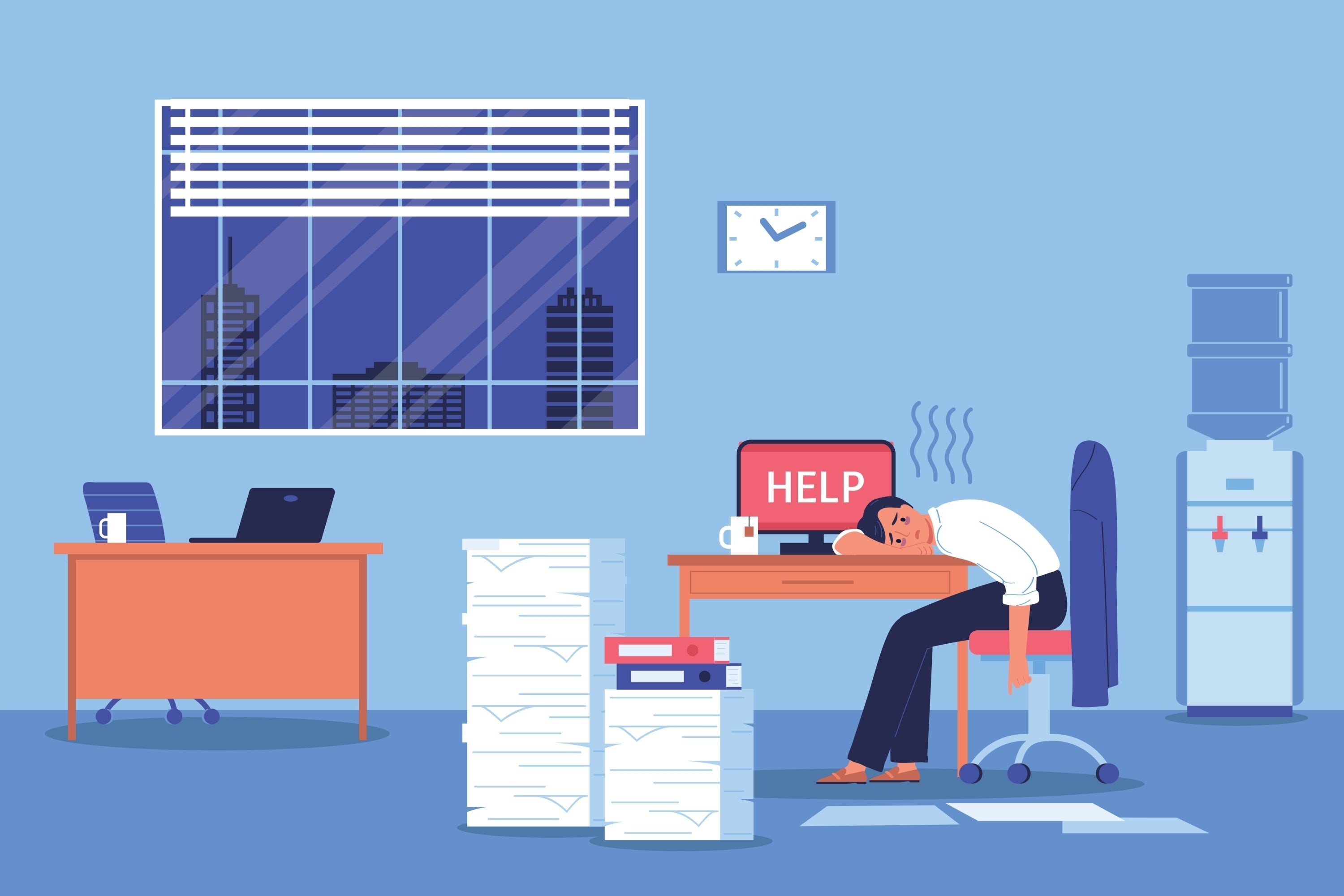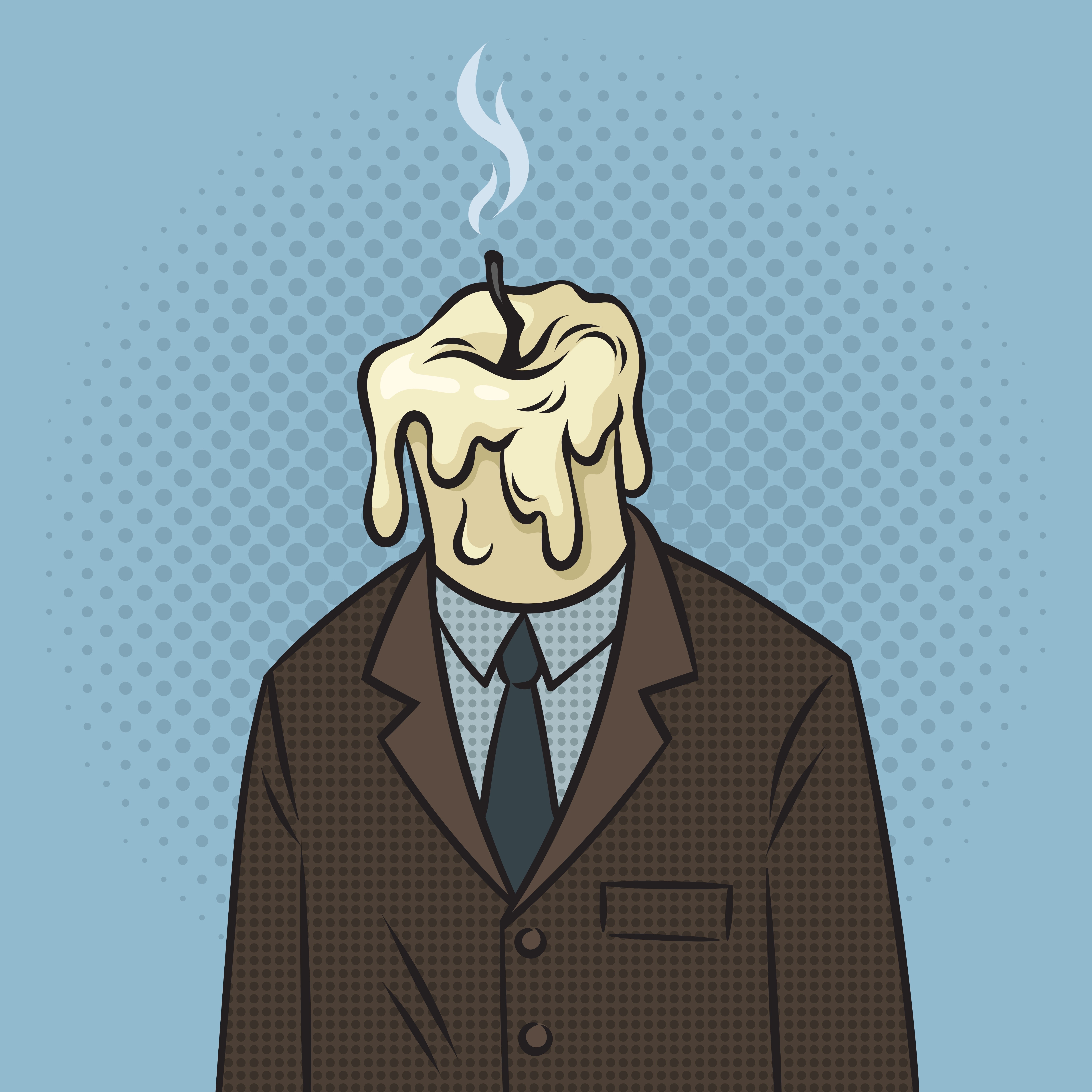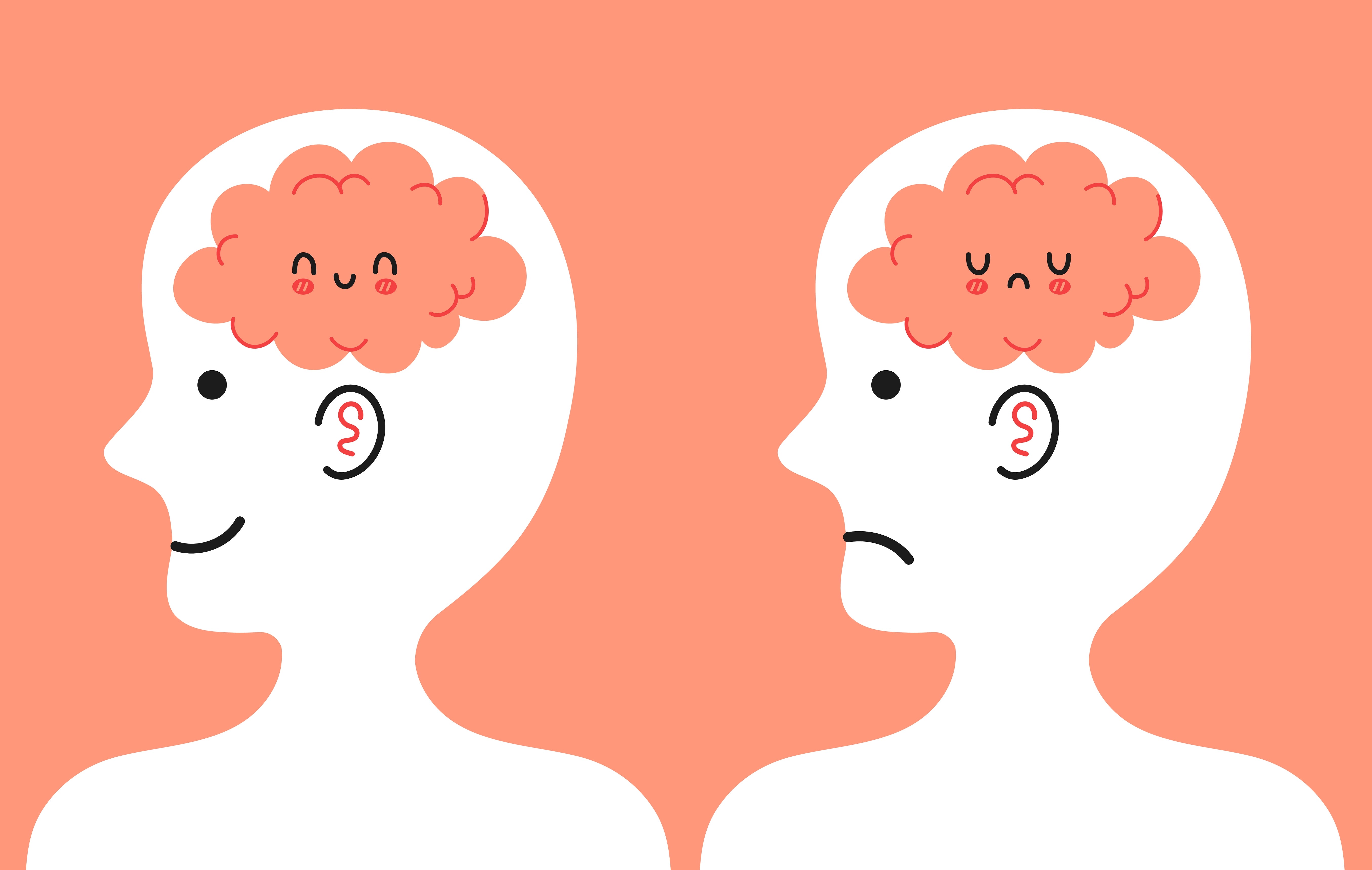Banner artwork by Overearth / Shutterstock.com
How to cope when feeling overwhelmed
As the year draws to a close, many of us feel like we are in the space between eustress (a positive stressor that sharpens our senses so that we can perform at our best) and burnout (where we feel exhausted, negative, and distant from our jobs). This space is where we feel overwhelmed. The end of the year is often when looming deadlines and holiday anxiety take a toll on our mind and body.
I spoke with Marco Imperiale, founder and managing director at Better Ipsum, a consultancy focused on legal design, legal innovation, and legal well-being, about ways to identify and overcome feeling overwhelmed.
What would you describe feeling overwhelmed?
“Feeling overwhelmed,” explains Imperiale, “is the feeling of being unable to catch up with everything. There are too many events, urgencies, updates, and client requests. It's simply too much of everything. Even our cognition of time is altered. In a state of overwhelmingness, everything seems urgent, and we become incapable of properly prioritizing our tasks.
It's not only a mental state but also a physical one. Our heartbeat quickens, our jaws clench, and our shoulders tense. We speak faster and louder, we sleep badly, and more importantly, we have difficulty breathing properly. Our thoughts can enter into a state of paralysis which will get worse once we realize that we haven’t done everything that should have been done. And that’s only the beginning…”
This description is reminiscent of the Harvard Business Review article, How to Deal With Constantly Feeling Overwhelmed, which described the “cognitive impact of feeling perpetually overwhelmed” as ranging from “mental slowness, forgetfulness, confusion, difficulty concentrating or thinking logically, to a racing mind or an impaired ability to problem solve.” Too many demands over extended periods can lead to “cognitive fatigue, making us more prone to distractions and our thinking less agile. Any of these effects, alone, can make us less effective and leave us feeling even more overwhelmed.”

What are the reasons behind this feeling?
“Some reasons are objective,” says Imperiale, “while others relate to lawyers’ mindset.”
Imperiale continues, “Objectively, the massive amount of updates and the demand for prompt, smart, and thoughtful decisions are core factors behind this feeling. We live in a world of exponential innovation where everything moves too fast, and we're expected to stay aware of what’s happening globally, in our office, and in the law. This leads to feelings of anxiety on a good day, and paralysis and burnout risks on a bad one. Being a lawyer, whether in law firms or as in-house counsel, doesn't help. Perfectionism, insecurities, inability to ask for help, comparisons with others, and false narratives can create a toxic mix.”
We live in a world of exponential innovation where everything moves too fast, and we're expected to stay aware of what's happening globally, in our office, and in the law.
How do you see overwhelm compared to burnout?

“The two can seem similar, but they are different. Feeling overwhelmed is a temporary and situation-specific condition, characterized by feeling swamped by the demands of the moment. Burnout, instead, is a chronic state resulting from ongoing stress, characterized by deep-seated exhaustion, cynicism, and a sense of inefficacy. That said, it is worth noticing that feeling overwhelmed can lead to burnout if not addressed.”
My earlier articles on How Positive Practices Reduce Burnout and Using Travel and Nature to Avoid Burnout discuss burnout, its causes, and suggested tips to beat it.
How would you combat feeling overwhelmed?
Imperiale identifies some steps we can take to combat these feelings:
- The first, and necessary step is acceptance. It only takes a moment of detachment and one thought: “If I maintain this behavior for the next one, three, five years, how would my body react?” Often, this little effort is enough to be impactful.”
- Secondly, I would address the “pride” element associated with feelings of being overwhelmed and busyness. If we take pride in these feelings, whether for personal reasons or social recognition, it’s unlikely that we'll overcome this behavior. Once we start taking pride in not being able to know or do something, there's space for healing.
- Only after these two steps, we can focus on adopting a reasonable strategy, which includes scheduling proper priorities, identifying reasonable goals, and including uncertain events that can affect our behavior. Despite the clarity, it’s very hard to implement. We tend to overestimate our capabilities, leading to unreasonable goals and frustration when we don’t achieve them. We also struggle with doing what needs to be done. We keep ourselves busy, but often not with the tasks that matter. Finally, we forget that our agendas are inherently flexible, and tend to become overloaded despite our best efforts. Including empty periods in our daily schedule is challenging, especially if we're accustomed to a full and colorful calendar, but it’s one of the most important steps.
- Lastly, I would stress the relationship element. Can we delegate a task? Say no to an event or an extra duty? Have honest conversations with our bosses about the risks of overwork? As you can see, the sense of overwhelm starts on a personal level but can quickly affect an entire department or company.
Are there tricks or shortcuts?
“One of my favorites,” says Imperiale, “is including rewards. For example, we could treat ourselves for delivering an article, winning a case, or participating in an event. However, this approach has downsides. Research shows that once the reward is removed, motivation can decrease. And ultimately, the goal is to find joy in the effort itself (easier said than done).”

Professor Andrew Huberman often discusses motivation, dopamine, and rewards. In his article, Tools To Manage Dopamine and Improve Motivation, he describes how we have a baseline if dopamine which is influenced by factors such as genetics, behaviors, sleep, nutrition, and the level of dopamine you experienced on previous days. Huberman highlights that it is critically important to maintain sufficient levels of baseline dopamine to sustain day-to-day motivation. And suggests establishing a healthy level of baseline dopamine by viewing early morning sunlight, eating tyrosine rich goods, avoiding melatonin supplements, avoiding bright lights between 10 pm and 4 am, and drinking caffeine.
Imperiale also suggests another approach — “striving for honesty in our narratives, feelings, and relationships. We are not invincible, and often feeling overwhelmed is the external representation of denying ourselves for too long. Unfortunately, even if our mind forgets, our body remembers everything and is ready to return it all, with interest.”
“Furthermore,” he continues, “I would suggest taking some time to reflect on everything we have done so far. Sometimes we underestimate how much we have worked to be where we are, and how proud we should be of our efforts.”
Huberman highlights that it is critically important to maintain sufficient levels of baseline dopamine to sustain day-to-day motivation.
Imperiale considers the longer-term benefits to intervening and correcting course: “Let me finally stress that — once we properly frame feeling overwhelmed — we'll feel lighter, breathe better, our sleep will improve, and our bodies will be happier. Serotonin and oxytocin will spread throughout the body, and we'll benefit from positive vibes. So yes, there's a lot of work, but the reward is significant.”
What’s the difference between using stress to our advantage and it overwhelming us?
“As K. McGonigal explains in her book, The Upside of Stress, stress can be extremely positive (even a blessing!). Therefore, there could be positive aspects when feeling overwhelmed as well. What is crucial is framing our experiences properly, because the way we frame them is even more important than the stress itself, according to McGonigal’s research. Therefore, how about seeing the positive sides of a demanding job, a strict boss, or a deadline, and not only the negative ones? It’ll be easier to keep up with everything.”

The Upside of Stress describes the characteristics of professionals who thrive under stress rather than burning out. These professionals are described as:
- Thinking about stress differently and seeing it as a normal part of life;
- Seeing stress as an opportunity to grow;
- Being more likely to acknowledge their stress and less likely to view every struggle as a catastrophe;
- Believing difficult times meant staying engaged with life rather than giving up or isolating oneself; and
- Always, regardless of the circumstances, continuing to make choices which either changes the situation or changed the way the situation affected them.
“I would also highlight that everything is temporary,” continues Imperiale, “It may seem obvious, but when we’re caught up in tasks we have difficulties representing clearly the long-term scenario.” This concept of time was echoed in one of my favorite podcasts of 2023, Don’t Stop Us Now! where Dr. Lineo Thahane described the best piece of advice she was given to her during her pediatric residency, 'just always remember that you can’t stop the clock.' It is a really simple statement but a really powerful one that has stuck with me over the years. Really what she was trying to say was that eventually this awful day will be over and you’ll look up at the clock and suddenly it will be time to go home and you will be out of this particularly tough situation that you are currently in.
Eventually this awful day will be over and you'll look up at the clock and suddenly it will be time to go home...
Final thoughts
“Let's address our health and our well-being before it's too late,” Imperiale implores.
Disclaimer: The information in any resource in this website should not be construed as legal advice or as a legal opinion on specific facts, and should not be considered representing the views of its authors, its sponsors, and/or ACC. These resources are not intended as a definitive statement on the subject addressed. Rather, they are intended to serve as a tool providing practical guidance and references for the busy in-house practitioner and other readers.




